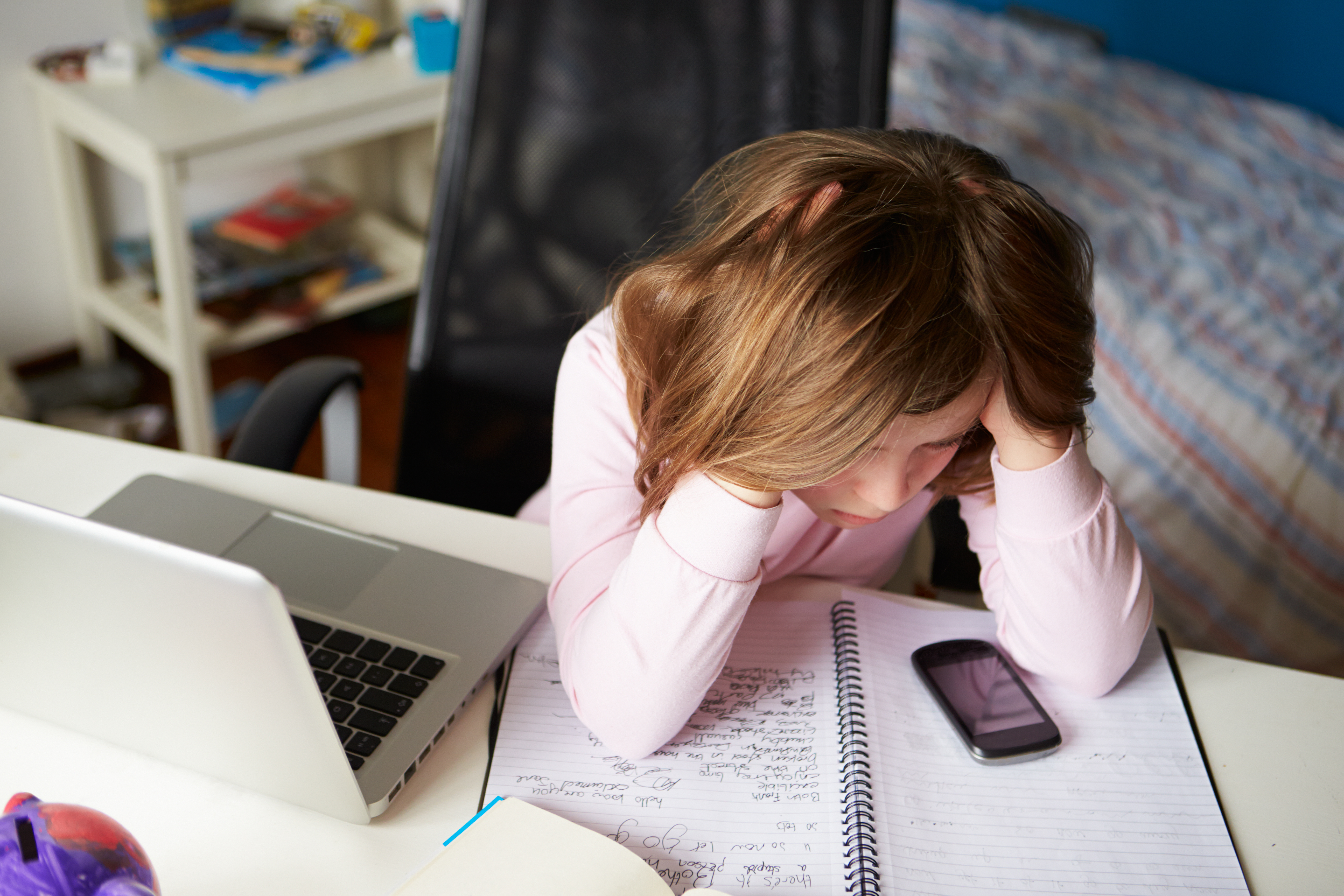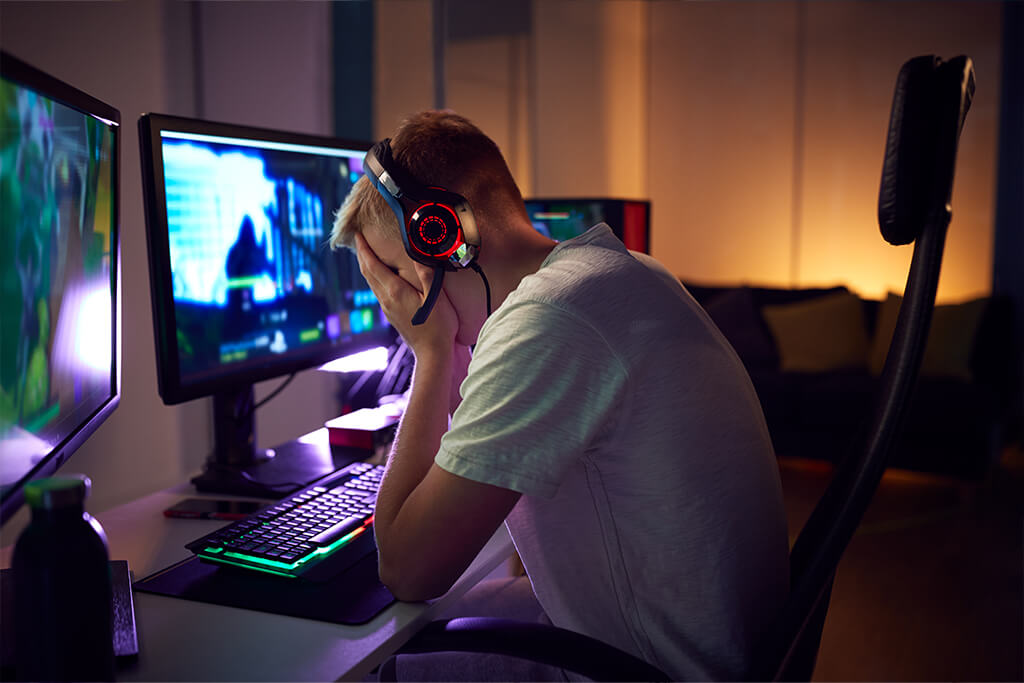Effects of Cyberbullying
In 2019, results from the Centers for Disease Control and Prevention’s Youth Risk Behavior Surveillance System (YRBSS) showed at least 15 percent of students studied had been electronically bullied (or cyber-bullied) within the previous 12 months.
And while bullying is often written off as a rite of passage as “kids just being kids,” it’s important that parents and caregivers know these instances can have lasting negative physical, psychological, and emotional effects.

THE CONSEQUENCES OF CYBERBULLYING
Experience
In-Person
Bullying
Abuse Drugs & Alcohol
Skip School
Receive Poor Grades
Have Lower Self-Esteem
Have more health problems
HOW CYBERBULLYING EFFECTS THE VICTIM
In addition to the effects above, research reveals that there are several negative consequences sustained by victims of cyberbullying. Researchers have also started to place bullying within a growing definition of Adverse Childhood Experiences, or ACEs – which are specific forms of childhood trauma that are linked to greater risks of negative health effects in adulthood.
The effects of cyberbullying on the victim:
- Higher rates of depression and anxiety
- Reduced feelings of self-worth
- Difficulties sleeping and increased bed-wetting events
- Higher number of physical issues such as headaches and stomachaches
- Increased suicide attempts (a Yale study found that victims of bullying are thought to be “two to nine times more likely to report suicidal thoughts than other children”)
- Increased instances of eating disorders (Another study also found that, for girls specifically, eating disorders are often more prevalent when they are involved in a bullying relationship.)
CAUSES OF CYBERBULLYING
What causes one person to bully another online? According to Joseph Magliano, Ph.D., Professor of Psychology and Director of the Center for the Interdisciplinary Study of Language and Literacy at Northern Illinois University, the answer to this question involves factors that are “multiple and complex.”
However, based on research in the field, Magliano says that people who cyberbully often:
- Use cyberbullying to feel more powerful than they think they are.
- Bully online in an attempt to gain popularity.
- Think that their peers are engaging in this behavior, so they do it too.
- Have poorer parent-child relationships.
- Are not monitored by a parent or guardian while online.


Outcomes For Cyberbullies
As seen in the causes listed above, a child’s home life and relationship with their caregiver can play a role in how they treat others online. That’s why it’s critical that parents and caregivers take proactive steps to ensure that their child feels supported and has clear boundaries on how to use the internet.
Not only will these positive supports at home help a child in the short term (while preventing others from being a victim of bullying), but the long-term impacts are important to consider too.
Recent studies have found that cyberbullies:
- Tend to be more hyperactive and have conduct-related issues.
- Demonstrate an increased risk for anti-social personality disorder (described as a lack of empathy, lying, and criminal behavior).
- Have more problems in adulthood such as holding down jobs, maintaining positive relationships, as well as avoiding drugs, alcohol, and criminal activity.
What Parents Can Do
While these statistics can be alarming, the good news is that parents and caregivers can play an important role in preventing or buffering the effects of cyberbullying.
The most important step a caregiver can take is to have open, honest, and frequent communication with their child about their daily lives as well as how they use the internet. Be aware of the most common signs of cyberbullying and check out these tips for creating healthy internet habits at home.)
No parent or caregiver is perfect or can ensure their child never experiences bullying online. However, those who show an active interest in their child’s life drastically increase the chances that their child will feel safe, and supported and know how to properly respond when difficult situations happen.

References & Sources
- Research published by the JOURNAL OF ADDICTION RESEARCH & THERAPY.
- Increased suicide attempts, YALE STUDY.
- Bullying and eating disorders in girls, JOURNAL OF ADOLESCENT HEALTH.
- Why some kids bully others. JOSEPH MAGLIANO, PH.D., Professor of Psychology and Director of the Center for the Interdisciplinary Study of Language and Literacy at Northern Illinois University.
- Archives of General Psychiatry, 2010 STUDY.
- https://www.stopbullying.gov/cyberbullying/what-is-it
- https://cyberbullying.org/2019-cyberbullying-data
- https://pubmed.ncbi.nlm.nih.gov/20658375/
The abuse may be brief, but the trauma lasts a lifetime.
Kids’ lives and futures are on the line!
Be the voice against neglect and contribute to end child maltreatment today.
Positive Parenting Support,
At the click of a button.
Previous Section
Parenting Resource Center
Effects of Cyberbullying
Next Section
